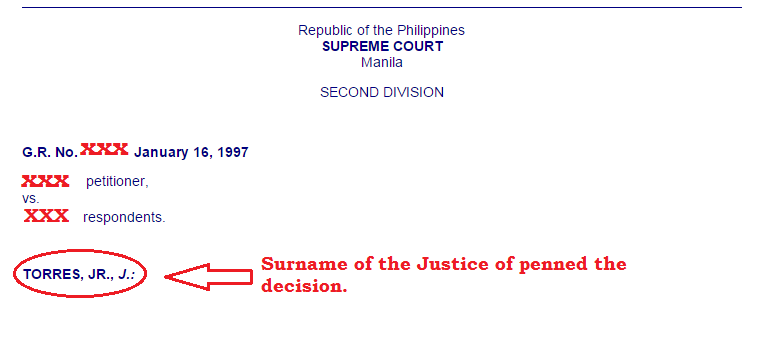CONSTITUTIONAL LAW II
FUNDAMENTAL POWERS OF THE STATE
POLICE POWER
POLICE POWER
G.R. No. 78742 July 14, 1989
ASSOCIATION OF SMALL LANDOWNERS IN THE PHILIPPINES, INC., JUANITO D. GOMEZ, GERARDO B. ALARCIO, FELIPE A. GUICO, JR., BERNARDO M. ALMONTE, CANUTO RAMIR B. CABRITO, ISIDRO T. GUICO, FELISA I. LLAMIDO, FAUSTO J. SALVA, REYNALDO G. ESTRADA, FELISA C. BAUTISTA, ESMENIA J. CABE, TEODORO B. MADRIAGA, AUREA J. PRESTOSA, EMERENCIANA J. ISLA, FELICISIMA C. ARRESTO, CONSUELO M. MORALES, BENJAMIN R. SEGISMUNDO, CIRILA A. JOSE & NAPOLEON S. FERRER, petitioners,
vs.
HONORABLE SECRETARY OF AGRARIAN REFORM, respondent.
vs.
HONORABLE SECRETARY OF AGRARIAN REFORM, respondent.
G.R. No. 79310 July 14, 1989
ARSENIO AL. ACUNA, NEWTON JISON, VICTORINO FERRARIS, DENNIS JEREZA, HERMINIGILDO GUSTILO, PAULINO D. TOLENTINO and PLANTERS' COMMITTEE, INC., Victorias Mill District, Victorias, Negros Occidental, petitioners,
vs.
JOKER ARROYO, PHILIP E. JUICO and PRESIDENTIAL AGRARIAN REFORM COUNCIL, respondents.
vs.
JOKER ARROYO, PHILIP E. JUICO and PRESIDENTIAL AGRARIAN REFORM COUNCIL, respondents.
G.R. No. 79744 July 14, 1989
INOCENTES PABICO, petitioner,
vs.
HON. PHILIP E. JUICO, SECRETARY OF THE DEPARTMENT OF AGRARIAN REFORM, HON. JOKER ARROYO, EXECUTIVE SECRETARY OF THE OFFICE OF THE PRESIDENT, and Messrs. SALVADOR TALENTO, JAIME ABOGADO, CONRADO AVANCENA and ROBERTO TAAY, respondents.
vs.
HON. PHILIP E. JUICO, SECRETARY OF THE DEPARTMENT OF AGRARIAN REFORM, HON. JOKER ARROYO, EXECUTIVE SECRETARY OF THE OFFICE OF THE PRESIDENT, and Messrs. SALVADOR TALENTO, JAIME ABOGADO, CONRADO AVANCENA and ROBERTO TAAY, respondents.
G.R. No. 79777 July 14, 1989
NICOLAS S. MANAAY and AGUSTIN HERMANO, JR., petitioners,
vs.
HON. PHILIP ELLA JUICO, as Secretary of Agrarian Reform, and LAND BANK OF THE PHILIPPINES,respondents.
vs.
HON. PHILIP ELLA JUICO, as Secretary of Agrarian Reform, and LAND BANK OF THE PHILIPPINES,respondents.
CRUZ, J.:
FACTS:
These are consolidated cases involving common legal questions including serious challenges to the constitutionality of R.A. No. 6657 also known as the "Comprehensive Agrarian Reform Law of 1988"
In G.R. No. 79777, the petitioners are questioning the P.D No. 27 and E.O Nos. 228 and 229 on the grounds inter alia of separation of powers, due process, equal protection and the constitutional limitation that no private property shall be taken for public use without just compensation.
In G.R. No. 79310, the petitioners in this case claim that the power to provide for a Comprehensive Agrarian Reform Program as decreed by the Constitution belongs to the Congress and not to the President, the also allege that Proclamation No. 131 and E.O No. 229 should be annulled for violation of the constitutional provisions on just compensation, due process and equal protection. They contended that the taking must be simultaneous with payment of just compensation which such payment is not contemplated in Section 5 of the E.O No. 229.
In G.R. No. 79744, the petitioner argues that E.O Nos. 228 and 229 were invalidly issued by the President and that the said executive orders violate the constitutional provision that no private property shall be taken without due process or just compensation which was denied to the petitioners.
In G.R. No 78742 the petitioners claim that they cannot eject their tenants and so are unable to enjoy their right of retention because the Department of Agrarian Reform has so far not issued the implementing rules of the decree. They therefore ask the Honorable Court for a writ of mandamus to compel the respondents to issue the said rules.
ISSUE:
Whether or not the laws being challenged is a valid exercise of Police power or Power of Eminent Domain.
Whether or not the laws being challenged is a valid exercise of Police power or Power of Eminent Domain.
RULING:
Police Power through the Power of Eminent Domain, though there are traditional distinction between the police power and the power of eminent domain, property condemned under police power is noxious or intended for noxious purpose, the compensation for the taking of such property is not subject to compensation, unlike the taking of the property in Eminent Domain or the power of expropriation which requires the payment of just compensation to the owner of the property expropriated.
SEE FULL TEXT IN THIS LINK:


